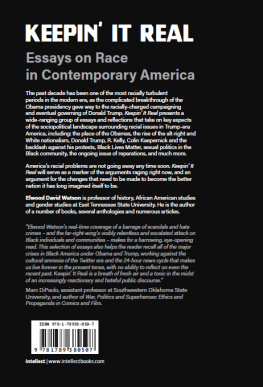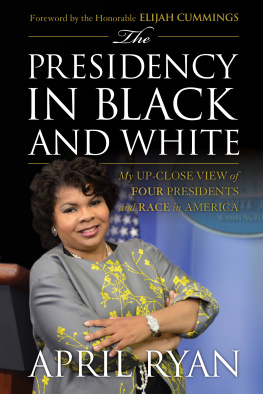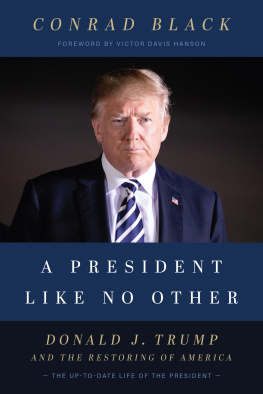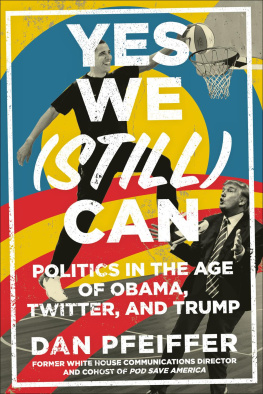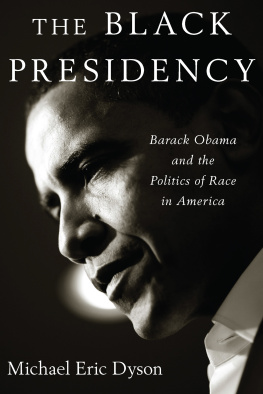Contents

First published in the UK in 2019 by Intellect, The Mill, Parnall Road, Fishponds, Bristol, BS16 3JG, UK
First published in the USA in 2019 by Intellect, The University of Chicago Press, 1427 E. 60th Street, Chicago, IL 60637, USA
Copyright 2019 Intellect Ltd
All rights reserved. No part of this publication may be reproduced, stored in a retrieval system or transmitted, in any form or by any means, electronic, mechanical, photocopying, recording or otherwise, without written permission.
A catalogue record for this book is available from the British Library.
Copy-editing: MPS Technology
Cover and Layout Design: Aleksandra Szumlas
Typesetting: Contentra
Production Manager: Tim Mitchell
Print ISBN: 978-1-78938-050-7
ePDF ISBN: 978-1-78938-052-1
ePUB ISBN: 978-1-78938-051-4
Printed & bound by Severn Printers, Gloucester, UK.
To find out about all our publications, please visit www.intellectbooks.com.
There, you can subscribe to our e-newsletter, browse or download our current catalogue, and buy any titles that are in print.
This is a peer-reviewed publication.

It has been more than half a century since the late mid-twentieth-century Black intellectual renaissance author, and cultural critic, James Baldwin, wrote his classic, The Fire Next Time (Baldwin, 1963). Baldwins work was riveting for its time. His spellbinding narrative examined the disturbing and vehement misunderstanding between Blacks (then Negroes) and Whites in regards to racial injustice of the era. His book became a catalyst for many progressive Americans of all racial groups, in that it prompted them into action and provided a passionate and eloquent voice for the modern civil rights movement. The book became a national bestseller and further catapulted him into the premier sphere of the American intellectual elite of all races. Today, as we move further into the twenty-first century, his prophetic message rings all too chillingly true.
It is a disappointing reality that many of the indignities (racial and otherwise), as well as differences in perceptions regarding the history and treatment of Black Americans ominously discussed during the 1960s, still apply today. This stark divide was evidenced in a poll conducted by CBS News in July 2015 that indicated 62 percent of all Americans (for Blacks the percentage was 68) believed that tensions in race relations were the highest they had been in twenty years (Sack & Thee-Brenan, 2015). Another poll taken in March of the same year by the Pew Research Center revealed similar attitudes (Pew Research Center, 2015). More telling was a poll taken by the same organization in August 2017, according to which, a sizable number of Americans across races indicated that they saw race relations to be fair at best and many interviewed saw them as poor. For Blacks, the percentage was 81 percent. For Whites, the number was 52 percent (Pew Research Center, 2017). It should come as little surprise that a disproportionate number of Black Americans have always been inclined to harbor more skeptical views on racial progress. History has given people of African descent good reason to embrace such cautionary views.
The circumstances of the past few years have certainly given any racially progressive person cause for pause: the attack on voting rights by many Southern states (Berman, 2015); the sinister targeting of many low-income and working-class Black home buyers by predatory lenders in the housing and financial industry (Loftin, 2010); the shocking initial indifference by many federal agencies, as well as the Bush administration, to the devastating impact that Hurricane Katrina had on its Black population in New Orleans in 2005 (Lavelle, 2006). We saw hope and despair on the faces of thousands of impoverished Black people of the city: men, women, children, and the elderly, which deeply demonstrated the racial and economic disenfranchisement rampant in the city. We have been witness to the horrendous treatment and disproportionate sentencing of Black people (especially Black men) in the criminal justice system (Alexander, 2010); the intense level of systematic and structural racism in our culture, as applicants with Black sounding names more likely to be discriminated against by potential employers than those with more traditional White-identified names (Bertrand & Mullainathan, 2003); massive defiance among many White radicals who vehemently and defiantly support the Confederate flag (Agiesta, 2015). White supremacists brazenly marched through Charlottesville and other American cities, feeling emboldened by the victory of Donald Trump and his racially divisive rhetoric in the 2016 election. The dilemma facing Black college graduates is that they are more than twice as likely to be unemployed as their White cohorts. Blacks, and in some cases, other non-White people, are profiled and harassed in various public and private venues. These are just a few examples of the current fractured racial climate (Jones & Schmitt, 2014).
The callous and disrespectful treatment of former President, Barack Obama, by his detractors was another major example of the current poisoned atmosphere (Capehart, 2015). Many Black Americans took Obamas mistreatment personally. They observed this blatant mistreatment of the president as a personal attack on themselves and the Black population in general (Facebook, 2015). The gullible assumption that America had become a post-racial society (if there can ever be such a thing as post-racial) upon the election of President Obama was a radically misguided illusion.
As a Black college academic, I have had the privilege to converse over the past few years with fellow educated Black and non-Black professionals, some friends and others acquaintances. I have also investigated further, interacting through social media. I can personally attest that there currently exists an unmistakable level of paranoia, anger, in some cases fear, and most certainly resentment, to the current volatile situation that has gripped the nation. The temperature is hot and the climate has become dangerously unpredictable.
Prophetic Messages and Folk Heroes
Over a century ago, Black intellectual extraordinaire of his day, W. E. B. DuBois, stated that the problem of the twentieth century would be the problem of the color line (DuBois, 1903). This conclusion was shared, some forty years later (in 1944) by the renowned Swedish sociologist, Gunnar Myrdal, in An American Dilemma: The Negro Problem and Modern Democracy (Myrdal, 1944). Both were on target. Indeed, such a prophetic message is very relevant today in the twenty-first century. If the past several years have taught us anything, it is that the United States as a nation is in a perpetual state of crisis when it comes to the racial situation plaguing our nation. To put it bluntly, the past few years have left a brutal, brash, ugly stain of racism, sexism, homophobia, classism and xenophobia on America and other parts of the world touched by US society.
To be sure, our nation has seen worse times, given our often tumultuous history. Nonetheless, 2015, 2016, and 2017 may very well become three years for the record books. In fact, as far as recent history (post-1985) is concerned, not since 1994 can we remember a time that has been this racially, sexually, culturally, and religiously divisive (Watson, 2016).
From student unrest on college campuses to politicians openly espousing racist, sexist, xenophobic rhetoric; attacks on affirmative action; economic wealth gaps not seen since the Gilded Age; heightened racial tension; the proliferation of racial hate groups; the ongoing murders of unarmed Black, Brown, gay, lesbian, and transgendered people; violence against women, America has witnessed back-to-back years that have been anything but tranquil.

